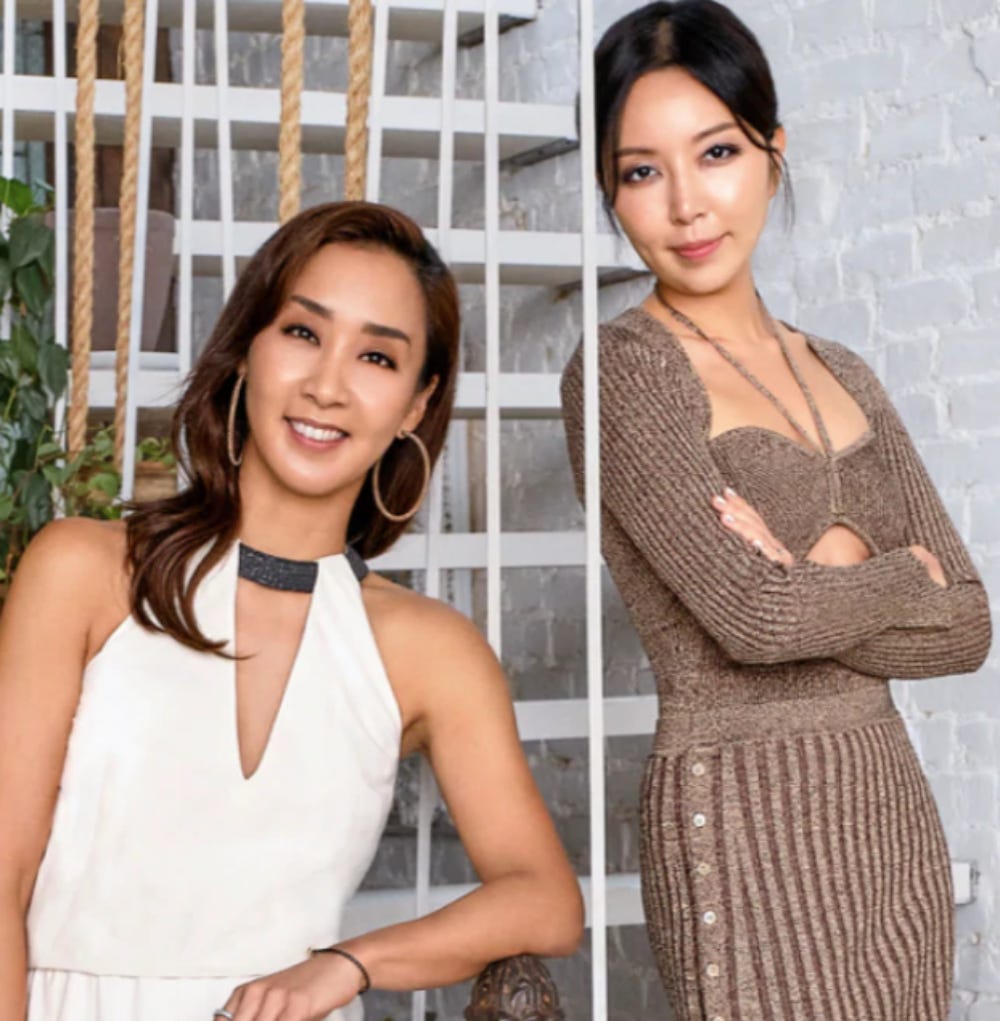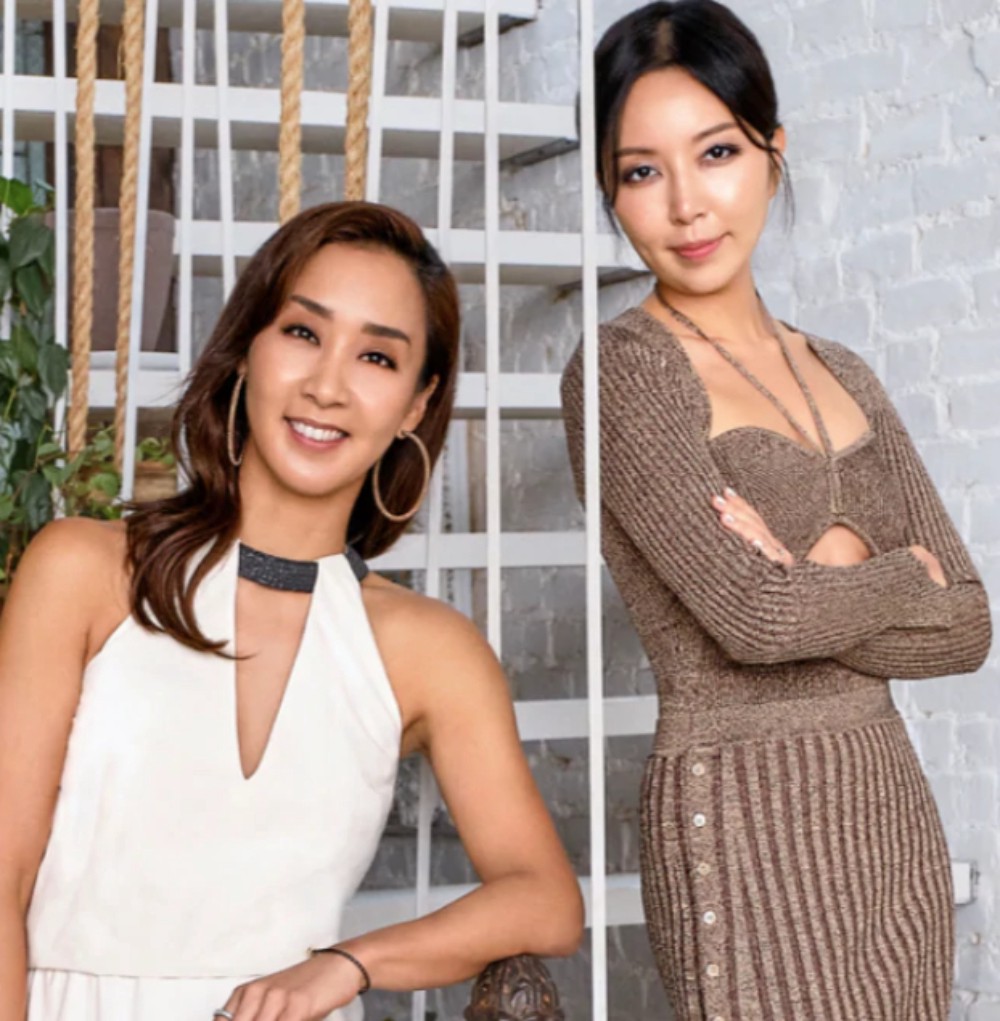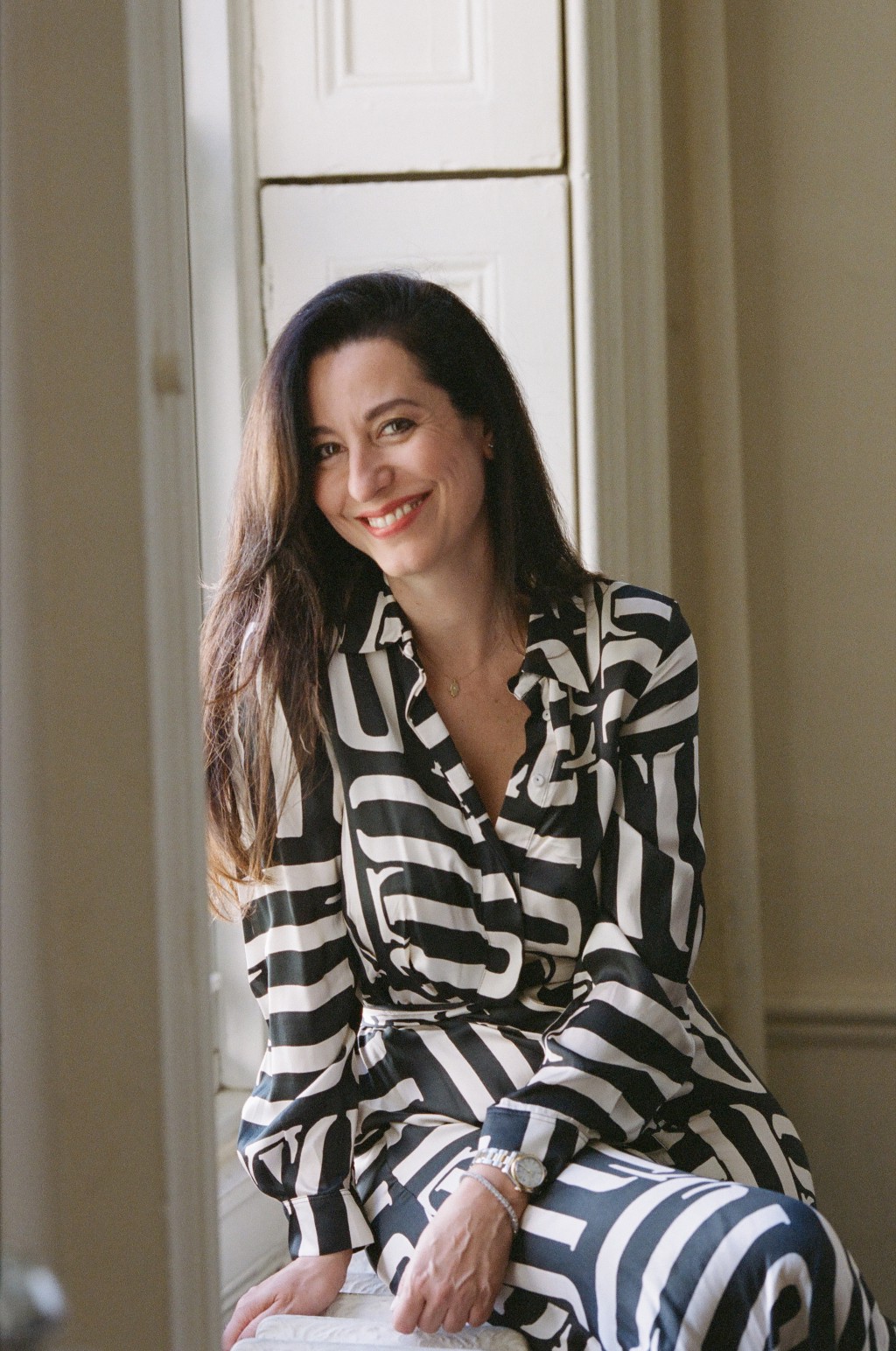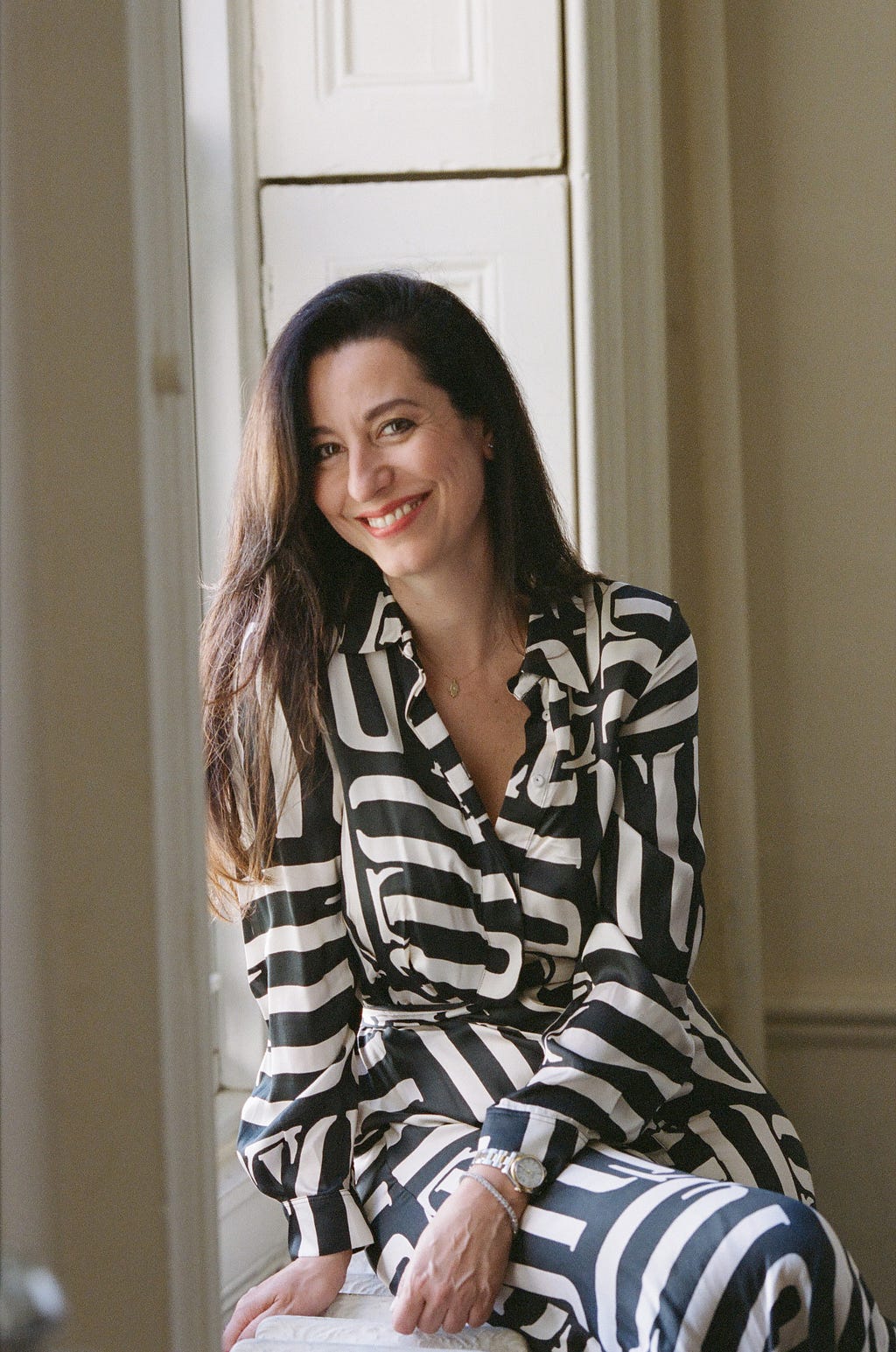Female Founders: Helen Lee And So Young Cho of leVerden On The Five Things You Need To Thrive and Succeed as a Woman Founder
An Interview With Candice Georgiadis

Sourcing and supply chain management is key yet is very difficult to manage as it runs under a strict calendar. Moreover, working with smaller local suppliers can sometimes be extremely challenging as some can turn out to be unreliable. There has to be a lot of research done and back up plans put in place before you can land on the correct partner.
As a part of our series about “Why We Need More Women Founders”, I had the pleasure of interviewing Helen Lee and So Young Cho.
Founders Helen Lee and So Young Cho combined their passion for curating traditional wellness practices from across the globe to create leVerden. Their personal experiences of healing guided their shared path forward — Helen through spiritual journeys at Ayurvedic and shamanistic retreats, and So Young through relaxation therapies after intense athletic training. Though former fashion executive Helen lives in New York City and So Young is an accomplished businesswoman in Seoul, they remain fast friends, united in their desire to help others discover a place of purity, ritual, and healing within themselves.
Thank you so much for doing this with us! Before we dig in, our readers would like to get to know you a bit more. Can you tell us a bit about your “backstory”? What led you to this particular career path?
Helen: When So Young and I reconnected after the COVID-19 lockdown, we didn’t quite expect to create a beauty brand. But our 20-year friendship led us down a familiar path of shared sensibilities — design, fashion, art, culture and creativity — and soon we were discussing a body care line based on the five senses that would lift us out of the doldrums of the previous year.
Can you share the most interesting story that happened to you since you began leading your company?
So Young: Originally, we had a different brand name, but while we were waiting for trademark registration, we decided on both the logo design and the brand concept and finished all the brand design. Six months into it, the trademark registration was rejected. As a result, we had to restart the process of branding, spending a lot of money and time designing the new brand name and concept. It was our first time doing it, so we didn’t know registering the trademark was such a challenge, and as we went through these things, we learned a lot that required more research, needed expert help, and spent a lot of time registering my trademarks.
Can you share a story about the funniest mistake you made when you were first starting? Can you tell us what lesson you learned from that?
So Young: Our brand concept is to introduce new ingredients to our customers, so we are always looking for surprising and interesting sources, the first of which is bamboo salt. In fact, I didn’t think it would be difficult to source bamboo salt because it is a common ingredient in Korea. After some research, there are places where bamboo salt is produced in large quantities, but we knew that it was mainly made by a small company operated by monks. Much like the trademark issue, six months into developing our product line the supplier decided not to sell to us. So in our minds we were meant to launch in June 2021, however we found ourselves without a brand name nor an ingredient to launch with. It was quite stressful at the time but in hindsight it’s quite funny.
From this experience, we learned that anything and everything can go wrong! After a few months of tracking, I was lucky enough to meet a monk kind enough to work with us. The competition in the market is so intense that I continue to look for new wonders, but I have already learned that sourcing is very difficult even if I have a good idea.
None of us are able to achieve success without some help along the way. Is there a particular person who you are grateful towards who helped get you to where you are? Can you share a story about that?
Helen: I wish to express my gratitude to Anna who was my mentor for 15 years. She has shaped me to be the person I am today professionally. I met Anna at the beginning of my career at Michael Kors in 2005. She was the President of Handbags and Footwear, and I was only an intern at the time. She took me under her wing and taught me most of what I know today when it comes to running a business. It was hard training but without her, I wouldn’t have challenged myself to grow into the person who I am today. Even to this day, I will channel her whenever I’m feeling stuck. It’s probably not imaginable nowadays but fashion back in the day was very demanding, often we would work 6 days a week/15–17 hours a day…. This was done because we were all very passionate about the things we were building. Our teams used to travel 4 times a year to Asia (every 12 weeks) and would pack Japan, China, Hong Kong and South Korea all in less than 10 days. I don’t know how I did it but can only say, we were able to because we had a strong leader that kept us motivated and we were acknowledged and rewarded generously. Because of those experiences, I have become a leader in my own way.
So Young: When I was in Korea, I ran an interior design firm and thought I had built up a lot of experience and in my 20’s, but once I came to the U.S., after taking a few years off work to parent, along with having some issues with the language barriers, I didn’t feel confident about starting work again in the United States. Helen, who had over 15 years of experience in the fashion industry and had brilliant ideas, was able to make me believe in myself and inspire us to start a leVerden. I sometimes think about whether I would have started working again now without Helen and I thank her so much.
Ok, thank you for that. Let’s now jump to the primary focus of our interview. According to this EY report, only about 20 percent of funded companies have women founders. This reflects great historical progress, but it also shows that more work still has to be done to empower women to create companies. In your opinion and experience what is currently holding back women from founding companies?
Helen: I grew up in a family where it was typical for women to be business owners. In her early years, my mother was a dancer and traveled around the world in the 1950’s and 1960’s which was uncommon for women to do during that time, and she was also a business owner herself. As a result, it was easier and more natural for me to follow that path. Even as a child growing up in Korean culture, I remember our play dates were about being a wife and taking care of husbands and children (at least in our generation). It’s only recent that women are now beginning to find their voices and making choices on whether to pursue a career vs being a housewife.
It’s only been a short history for women sitting in leadership roles and to make it even more challenging, women continue to be expected to become the default parent. Taking care of children is a full-time job on its own, how are women expected to strive in this type of environment?
Lastly, it is still very much a “boys club” when trying to access funding because VC Funding and investment firms are still very much a male dominated industry.
Can you help articulate a few things that can be done as individuals, as a society, or by the government, to help overcome those obstacles?
Helen: I once read in an article that 42% of Entrepreneurs in the US are female business owners. That represents close to 50% of business owners which is an unequal comparison to only 20% of funding spread to women founders.
I think some of the ways that we can help women overcome these obstacles include:
Providing affordable childcare services during the day when parents are out to work.
Public education/majors starting in Highschool to promote VC and Finance industry. One of the challenges I feel with these industries being male dominated is that women only find out about these types of jobs when they’re in college or during MBA where men are taught at a very young age from their brothers, fathers, and inspirational male figures to be able to imagine these positions.
This might be intuitive to you as a woman founder but I think it will be helpful to spell this out. Can you share a few reasons why more women should become founders?
Helen: While I don’t believe that it’s my place to tell any women what they should or shouldn’t do, I have to say that for me I never imagined myself becoming a founder. I had a very successful career path and probably could have pursued it for much longer. But I made the decision to pivot and try something new. In the beginning, I had to train myself to be confident in the decisions I made and to be strong for the team that I’m leading. Much of it was a learning curve and still is but it’s a way for us to have full control of the decisions we make. And it’s been great to be able to practice my creativity and be able to communicate my thoughts to the world. It’s kind of exhilarating, especially after marching to someone else’s beat for 15 years.
What are the “myths” that you would like to dispel about being a founder? Can you explain what you mean?
So Young: There is an expression in Korea, “An old virgin who has yet to marry only works and counts” This is a stereotype describing how women who only focus on work can miss the boat on marriage should instead pursue a family. There was a time in Korea, when it was thought that the only way for women to achieve success was by clinging onto work. However, I think the mindset has shifted and there is a way for women to balance work and their personal lives and there is room for a gentler version of a businesswoman.
In Eastern culture, the concept of purity is like the flow of water, as the saying goes “go with the flow”.
Business is much like moving with the flow, it’s only when you fight against the flow that you tend to get stuck.
Is everyone cut out to be a founder? In your opinion, which specific traits increase the likelihood that a person will be a successful founder and what type of person should perhaps seek a “regular job” as an employee? Can you explain what you mean?
Helen: One must train oneself to have a tremendous amount of resilience, discipline, and determination when running your own business. As a founder, you are the captain of the ship, you can either sink or sail the ship, there is no one telling you how to do it, you sort of need to figure things out on your own. I guess in this sense there is a greater risk of failing. The biggest trait I feel is important to become a founder is not being afraid to fail as there will be many little sequences of failure along the way as you create your own project.
In a “regular job” it’s easier as a lot of the work is already mapped out for you and in most cases, you work with a predetermined schedule and role. Anyone who wants to be on the safer side is more cut out to hold regular jobs.
Ok super. Here is the main question of our interview. What are your “5 Things I Wish Someone Told Me Before I Started” and why? (Please share a story or example for each.)
So Young: No matter how close of a friend you have, there is always a risk of losing that friend over business. Fortunately, Helen and I have similar styles, design tastes, and ideas and as a result it is easier to work with each other. But this is not to say we don’t have differences and sometimes have conflicting views over different ideas. Whenever I do, I always think about whether what I want is a business or a friend, my answer always seems to be friend. And therefore, when there’s an issue we have a mutual understanding of our priorities and are able to move forward. Growing up as conservative Korean, it’s not easy for me to express my thoughts, whereas Helen, who was born and raised in the United States, is very used to self-expression. Helen helps me express my thoughts periodically in regards to partnerships and business relations. We often try to have open conversations and freely discuss and plan out next steps so there is not the slightest misunderstanding. So far we continue to be very good friends and business partners.
It takes a lot of money, time, and effort to create a brand. It took more than a year to launch leVerden, and it took a lot of money and effort to design, produce, and so on. But the fact is, it’s not all about launching the brand, there is also a waiting period before the brand receives recognition to be able to leave a stake in the ground. We have to constantly remind ourselves to be patient.
At the initial stages of a business, it is in our nature to recruit people that are closest to us for various reasons. But as time passes, you might find it difficult to sustain these relationships. At some point, you must weigh out the pros and cons of these relationships. From my experience, it is best to hire the talent that is suitable for the business.
Sourcing and supply chain management is key yet is very difficult to manage as it runs under a strict calendar. Moreover, working with smaller local suppliers can sometimes be extremely challenging as some can turn out to be unreliable. There has to be a lot of research done and back up plans put in place before you can land on the correct partner.
The balance of work and my life is super important! I am a mother of 2 children, a wife, a founder of a business, and a person who values my personal life very much. I’m working with a schedule that honestly requires multiple bodies to pull off, I need to make time to ensure my body is healthy and fit with Pilates and golf, do business work, help with housework and homework for my 5th grade daughter. In the end, what I do is get up earlier and sleep later. Try to fit a variety of things in your schedule other than just your work including exercise time and the time needed to spend with family as much as possible. I would recommend doing your best to not interrupt or disturb your partners as much as you can, my partner Helen and I try to implement this by doing things like not calling each other after 8 p.m. on Sundays. My career and business are important, but my time with my family and my personal time are even more important.
How have you used your success to make the world a better place?
Helen: I really find what is happening with the planet to be very sad. I love the beach but I’m afraid one day the younger generations will not be able to enjoy all the beauties I have seen and experienced. Sadly, the world is deteriorating.
We want to be able to alleviate some of the damage that is being done by creating a business that has a sustainable mindset, therefore we design with a circular mindset. The other point I want to touch upon is we want to be able to support some of the indigenous communities out in the world by buying ingredients directly from the indigenous farms and NGOS who help build some of these communities.
You are a person of great influence. If you could inspire a movement that would bring the most amount of good for the greatest number of people, what would that be? You never know what your idea can trigger.
So Young: In Korea, a close friend published a book about 12 years ago. The title of the book was “I Make Good Money.” At the time, I thought that people with immense wealth and success were only looking ahead, thinking of their own interests. I thought then that would be the only way that I could succeed, but this book changed my perspective. I want to have a good influence on the world as it revolves around our business by not prioritizing money first. I truly believe that success is built on being enthusiastic, practicing good business, and respecting your surroundings and the people around you. Creating a fun and respectful atmosphere builds positive energy which transfers from one person to the next.
If I could inspire anything it would be for businesses to not say they are doing something positive but also back it up with more action. For example, our small business is committed to sustainability, therefore we have prioritized planting more trees, donating to eco-friendly and environmentally conscious projects and building products that use cleaner and more recyclable materials.
We are very blessed that some very prominent names in Business, VC funding, Sports, and Entertainment read this column. Is there a person in the world, or in the US with whom you would love to have a private breakfast or lunch with, and why? He or she might just see this if we tag them.
Helen: There are two figures that I came across in recent times that have inspired me greatly, Rose Marcario and Simone Sinek. But if I had to choose just one, I would be so grateful if I ever had the chance to meet Rose Marcario in person.
I don’t even know where to start when I’m trying to answer the why… She’s so charismatic and humble at the same time. There was an article published by the NY Times last year where she speaks about one of the reasons why she left Patagonia and how her next goal in life is to use business as a force of good instead of evil and greed. And then she continued to speak about the Vedic system and the four stages of life, where the third stage in life “vanaprastha” is to go into a forest- which is the stage she is in, to become an adviser and a teacher and let the next generation take the reins of the responsibilities.
This has always been her attitude in the way she leads one of the most influential companies in the world and has been such a strong activist at the same time. When I see people like this successfully running their businesses, I feel motivated to become a better person.
Thank you for these fantastic insights. We greatly appreciate the time you spent on this.
Female Founders: Helen Lee And So Young Cho of leVerden On The Five Things You Need To Thrive and… was originally published in Authority Magazine on Medium, where people are continuing the conversation by highlighting and responding to this story.




